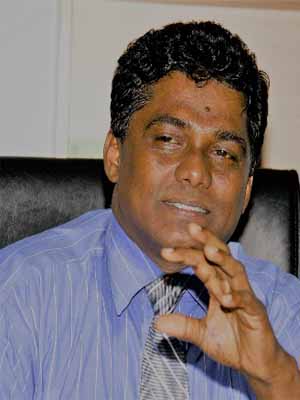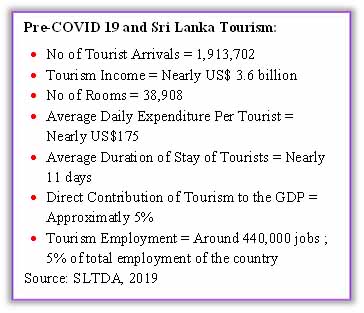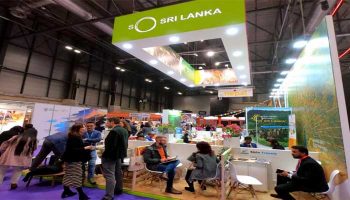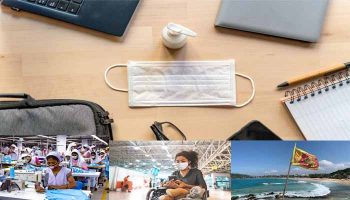RECOVERY AND RESILIENCE OF COVID PANDEMIC AFFECTED SRI LANKA TOURISM


Department of Economics
University of Colombo
“Doing the Right Things and Doing Things Right”
A Reality Emergent:
The outbreak of Coronavirus COVID-19 Pandemic has made a severe negative impact on global tourism development. The industry has become one of the hard hit industries in the world at present (www.statista.com/topics/6224/). As the third wave of COVID 19 is devasting the whole world at present, the reality is that global tourism will be hard hit throughout 2020 and beyond, even if the spread of the virus is brought under control in the coming months (https://www.oecd.org/ 2 June 2020). It is because that tourism necessarily involves people-to-people interactions and the movement of people travelling from their place of usual residence to destinations within their own country and to other countries. Tourism activities are also likely to be among the last to restart. The COVID pandemic has significantly influence on tourist behaviour and their travel interests, which must be seriously taken into consideration when considering the designing and implementing new policy measures and management strategies for the response and recover of domestic and international tourism.

Sri Lanka has been recognized as the Top Best Destination Country in the world for Travel in 2019 by Lonely Planet Travel Magazine. Recovery of Sri Lanka Tourism from the Easter Sunday Terror Attacks on 21st of April has confidently come back at the end of Year 2019, bearing only 5-6 months. In 2019, total international tourist arrivals were 1.9 million despite nearly 17% decline compared to 2018 (2.3 million of tourist arrivals) and also nearly 18% decline of tourism income/receipts compared to 2018 ($4.4 bn). If we analyse the growth trends of tourism earning then it is obvious that Easter Sunday Terror attack destroyed the growing growth trends of tourism earning coming from past few years (E.g. Its revenue went up 12% on the $3.9bn of 2017).
Impact of COVID-19 on Sri Lanka Tourism:
Tourism is a multifaceted and interconnected industry with the other sectors and industries of Sri Lankan economy. The industry has a strong backward and forward linkages, which is relatively higher than that in many other industries of our economy.

It has been approximately estimated that the majority of total of employees, direct and indirect, formal and informal are severely affected due to the impact of COVID 19. On average more than 90% of total employment of the industry is so vulnerable and majority of them are already unemployed. As estimated, the total affected unemployment of the tourism industry due to COVID-19 is nearly 350,000-400,000 employees. In addition, foreign exchange earnings from the industry have reached its near zero level. Otherwise if not COVID 19 Pandemic, expected foreign exchange earning of 2020 must be at least 4 US$ Billion.
Emerging Trends and Patterns in COVID Affected Global Tourism
The recent trends and patterns in global tourism emergent, under COVID Pandemic can be seen until finding a new vaccine as a medicine for or a situation maintaining with fully controlled COVID 19 Pandemic:

- MICE Tourism market will go into a defunct similar situation for a while.
- Mega events will become less attractive for tourists.
- Group travel will shrink
- Leisure travel will decrease for some time.
- Cruise travels will be less attractive for affluent and high-end tourists
- Religious tourism will drop due to mass gathering’s health risk.
- Mature/Senior travellers and retirees will drastically decline going abroad, more specifically far destinations.
- Tourism may be inward-looking and more domestic focused.
- Air travel will become more expensive.
- Luxury hotels may come cheaper.
- Food & Beverage consumption of hotels and restaurants will be changed towards more health concerns
- Demand for personalized service, hospitality and caring will be rocketing up
- Productivity and service attitudes of tourism employees will be severely challenged
- There will be an increasing demand for high degree of networking and collaboration
- Application of sustainable tourism practices will become highly instrumental and essentially strategic.
Evolving Post-COVID Tourist Behaviour and Preferences in Global Tourism
- Tourists become more likely to travel independently or in small groups.
- They avoid visiting crowded tourist destinations, instead preferring less well-known locations.
- Nature-based travel options could be more interested.
- Higher attention on safety and hygiene protocols in selecting Hotel/Restaurant.
- A main purpose of travel will be ‘Health and Wellness’, but leisure and pleasure will be remaining as the core of travelling.
- Traveling locally more, looking inwards within the opportunities to the domestic market
- Maintain necessary social distancing
- More interested on Micro-holidays and Road trips
- New demand for Regional Tourism
- Higher demand for more heterogenous and individualistic tourism services
Key Policy Measures and Result-Based Strategies for Tourism Recovery Against COVID Pandemic
National Policy Framework and Sri Lanka Tourism of the present government of Sri Lanka guided with Gotabaya – Presidential Election Manifesto: Vistas of Prosperity and Splendour has kept a great expectation on tourism industry and its development programmes along with the intention of increasing annual tourist arrivals to 7 million to add a foreign exchange inflow of USD 10 billion to the domestic economy.
On the basis of National Policy Framework and recently published Sri Lanka Tourism Strategic Action Plan (Jan 2020 – DEC ‘2023), the people centred economy and people centric Sri Lanka Tourism can be summarized into Six-Hexagon Wheel.

In this context, following key policy measures and result-based strategies can be instrumental for the reliable recovery and strong resilience building of Sri Lanka Tourism:
- Focusing the Right Policy Measures and Priority Thrust Areas, keeping the due attention on (a) Comparative Advantages, (b) Industry Interdependence and Linkages, (c) Possible Risk and Vulnerability, (d) Capacity Threshold and Resilience Building, (e) Opportunity Costs and Untapped Potential, (f) Future Market Prospects, the best suitable and “tolerable” level of tourism development must be carried out through Result-Oriented Tourism Planning and Entrepreneurial New Public Service Management based on the Meritocracy and Performance.
- Meeting Global Goals with Emergent Global Trends: Newly emerging market trends must be incorporated.
- Sustainable
practices in tourism products – environmentally and socio-culturally friendly
- Responsible tourism products – fair trade, fair distribution of tourism income, human right and gender equality
- Newly emergent tourism demand-driven products – greener and healthier tourism products
- People-centric and authentic tourism products
- Maintaining Professional Discipline and Business Ethics: Transparent business operation and equal opportunities for all relevant stakeholders, ensuring fair trades and good governance must be ensured while bringing the informal tourism sector into the mainstream of tourism operation.
- Keeping Trust on Local Resources and Local Wisdom: Post-COVID Tourism seek the importance of Glocalized Tourism Products – Local Tourism Products for Global Attraction. Keeping trust on local wisdom, local resources, local hospitality and local tourist attractions in regional/provincial levels is instrumental to recover the industry.
- Enhance the Resilience Building of the Industry: In this context, following actions are important: (a)Promote Domestic Tourism and Regional Tourism; (b) Enhance transferability of tourism human resources and real assets into other industries (convert tourism employees as Multi-Skilled and Multi-Task Industry Professional) when a crisis/disaster is occurring; (c) Improve the financial resilience through financial management (e.g. disaster resilient insurance system); (d) Provide tourism crisis management training and capacity development programmes etc.
- Promote New Tourism Products to Most Reliable Tourism Market under New-Normal: Aparthotels and Homestays with specific tourism typologies such as Wellness Tourism, Honeymoon Tourism, Rural Tourism, Agritourism (combining the cultivation of Ginger, Tamarin, Golden Apple Flowers (Belimal), Coriander etc), Religious & Spiritual Tourism, Culinary and Cuisine Tourism (including Tea, Cinnamon and with Sri Lankan Authentic foods and beverages) must be promoted. It is also important to promote Sri Lanka Tourism keeping reliance on Asian tourist markets mainly with Chinese and Indian inbound tourists.
- Ensure the Safety and Security as the First Priority of the industry: Besides the Four “S”s (Sun, Sea, Sand and Smile), Safety and Security must be given the highest priority. It is not only for tourists but also for the employees of the industry.
- Strengthen Innovative Private Sector with Entrepreneurial New Public Service for development ofinfrastructure, human resources and tourist service facilities while creating innovative and competitive tourism products through new technologies.
- Provide the Financial Liquidity for Employers and Protect Tourism Employments: Create dedicated tourism support schemes for small businesses, entrepreneurs & self-employed. It can be a Tourism Social Security System for building the resilience against the possible vulnerabilities of the industry and also can be introduced pension scheme for the employees with their suitable financial commitments.
- Synergizing the Innovation and Sustainability Together: This must be the game-changer and real-savior for recovery from the pandemic. Policy makers and practitioners must consolidate the national and global innovation ecosystem by investing in the digital transformation for better destinations’ planning & management.
Finally, the success of all these strategies and policy measures is mainly determined through “Doing the Right Things and Doing Things Right” together.






